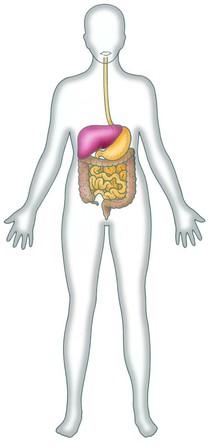 |
|
| > Welcome > Health Reporter > Into the Valley of Digestive Health
|
|
|
If we all lived in the Garden of Eden, and sin had never entered Planet Earth, then not one of us would suffer from ill health. Certainly none of us would suffer from diseases of the digestive system. As it turns out, we live in a world polluted with materials, gases and chemicals which God never intended for us. All these pollutants, even well-meaning inventions by scientists, affect health. And today we are talking about the human digestive tract. You see, the digestive system is intricate, wonderfully designed and created, full of more interesting structures and inhabitants than we could ever imagine. In fact the human digestive system is an entire eco system. And even the most informed scientists admit they don’t know everything about how to keep the digestive system healthy, nor do they completely understand the way the digestive system works.
Brain Cells in our Guts?There are perhaps hundreds of different species of bacteria, many are beneficial doing us good but there are species which can turn nasty if there are too many of them. Then there are the masses of tiny seaweed like structures connected to our digestive lining. They wave back and forth trapping food molecules. Did you know a large part of our immune system lives in the digestive system? And then there are receptors for chemical messages sent from the brain which can tell if we are feeling happy or sad or some other emotion. We even have neurological cells in our digestive systems. Who would have thought? Brain cells in our guts! Into this Valley of Digestive Healing, our family ventured praying fervently that God was leading us. We discovered that this intricate and wonderfully created world of the human digestive system could be resilient and strong, a source of great health and wellbeing. We learned some of the simple things we can do to heal our digestive systems. (More on that later.) However, we also learned that the modern world is a huge disadvantage to the human digestive system. Dysfunction is common, if not universal. And you will understand why, when you see the list of ways the digestive system can become injured!
How Digestive Systems are InjuredAs it turns out, injury brings pain and suffering felt in many parts of the body, not just the digestive system. Digestive injury can be mild and annoying - perhaps occasional bloating, cramps and constipation. Or the injury can be serious - celiac disease, ulcerative colitis, Crohns disease, cancers. And then we really started to realise how vital a healthy digestive system is. Because we learned that digestive disease can be a factor in mood swings, anxiety, chronic fatigue, liver disease, heart disease, motor neuron disease, lupus, multiple sclerosis, autism, schizophrenia, bi polar syndrome and more. Listed below are the many ways the digestive system may be injured. We have not finished learning, so there will no doubt be more. The list is so long, and has come after studying so many sources; we don’t have the references together in one place. However, I will attempt to gather them together and update the article. If you desperately need to know a reference – just email us on info@vitalforce.org.nz. Please don’t get depressed reading this, keep your “This is interesting...” antenna up and know there is GOOD NEWS to come later:
Interestingly, making sudden and large dietary changes – for instance suddenly becoming a vegan, instead of gradual change – can cause damage too. But wait, there's more!! There’s the GOOD NEWS! But you will have to wait a little while for that! In the meantime, here’s a clue: eat some raw, organically grown or chemical free vegetables EVERY DAY!
We thank DK Publishing for their wonderful books over the years, which we have been able to use to encourage, educate and inspire people of all ages from New Zealand to Scotland and Australia. We highly recommend DK books. This lovely image of the digestive system comes from http://www.clipart.dk.co.uk/374/subject/Biology/Digestive_system
Posted: Mon 08 Jul 2013 Make an Enquiry |
|
|

